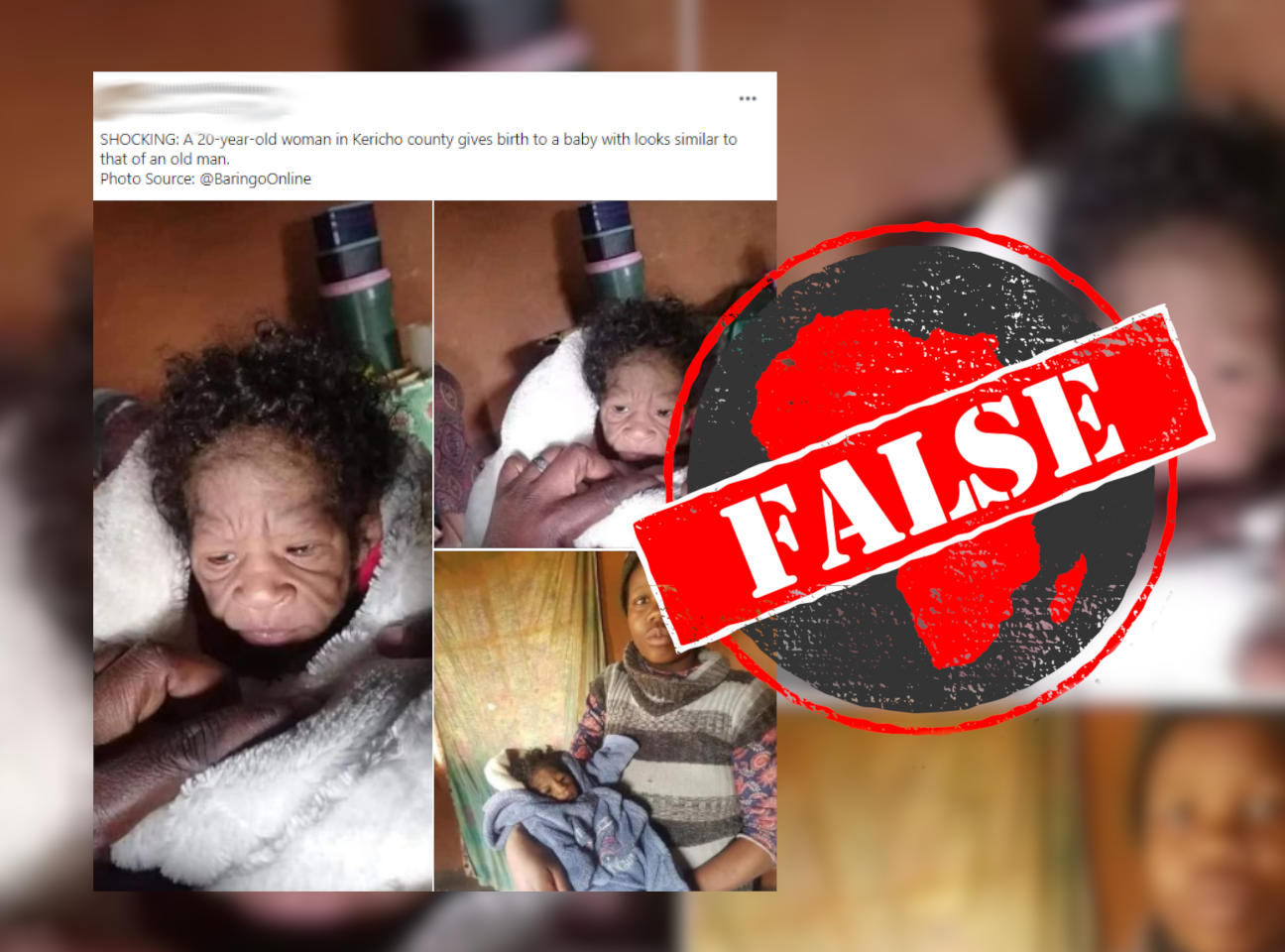In August 2021, Africa Check examined a series of photos, posted on Facebook in South Africa, of a baby with an unusually wrinkled face.
We concluded that the baby was born in South Africa and likely has progeria, which causes children to age prematurely.
The photos were circulating widely, with some unkind comments. The Daily Dispatch newspaper reported that the family of the baby’s mother had “called on the public to be sensitive to the child’s condition”.
But the photos have now resurfaced on Facebook in Kenya, with a false claim about where the mother and child are from.

Rare genetic disorder
“SHOCKING: A 20-year-old woman in Kericho county gives birth to a baby with looks like that of an old man,” the caption to the photos reads.
Kericho county is in southwestern Kenya. The baby was born in Libode, a village in South Africa’s Eastern Cape province.
But what is progeria? According to the US National Institutes of Health, the rare genetic disorder – also known as Hutchinson Gilford syndrome – is caused by a mutation in the Lamin LMNA gene.
“Progeria leads to extreme premature aging and affects many different body systems,” the NIH says.
“The symptoms begin within a year of life with poor growth and weight gain. Children with progeria have a characteristic facial appearance with a large head, small mouth and chin, narrow nose and large eyes. Other symptoms include baldness, loss of fat under the skin, and dental and joint abnormalities."
Republish our content for free
For publishers: what to do if your post is rated false
A fact-checker has rated your Facebook or Instagram post as “false”, “altered”, “partly false” or “missing context”. This could have serious consequences. What do you do?
Click on our guide for the steps you should follow.
Publishers guideAfrica Check teams up with Facebook
Africa Check is a partner in Meta's third-party fact-checking programme to help stop the spread of false information on social media.
The content we rate as “false” will be downgraded on Facebook and Instagram. This means fewer people will see it.
You can also help identify false information on Facebook. This guide explains how.


Add new comment